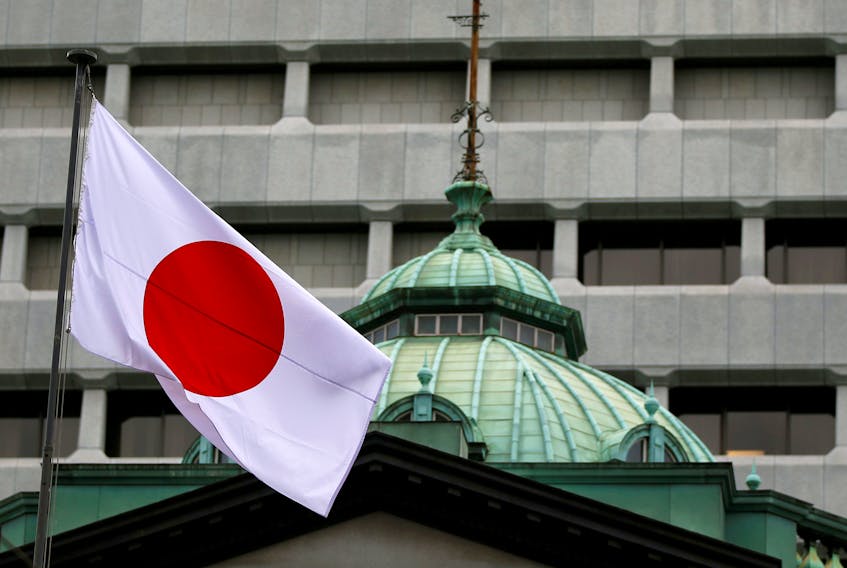By Leika Kihara
TOKYO (Reuters) - Japanese commercial banks are loading up on complex financial products and risky loans in their hunt for yields, the central bank said on Thursday, warning of the accumulating cost of prolonged ultra-low interest rates.
Faced with narrowing margins and a dwindling population, regional banks have increased loans for property investment and to companies with low profitability, the central bank said in a twice-yearly report analyzing Japan's banking system.
Despite continued improvements in the economy, some of the loans have turned sour due to lax lending standards and a rising number of firms falling behind in restructuring, it said.
"Credit costs remain low but have recently started to rise, particularly for regional financial institutions," the BOJ said.
"As they have not been able to secure adequate returns relative to the risks involved, their capital adequacy ratios have continued to decline moderately," the report said.
If such conditions persist, regional banks could lose the capacity to absorb losses from soured loans in the event of a major shakeout in financial markets, it said.
Big banks have expanded overseas lending and investment in complex financial products, which make Japan's banking system more susceptible to global risks, the BOJ's report said.
The number of collateralized loan obligations (CLOs), a form of securitization which pools bank loans to companies, has ballooned in recent years as investors hunt for higher returns by buying into loans to lower-rated and riskier companies.
Japanese banks have also piled in. CLOs make up about 20% of their investment in overseas credit products, the BOJ said.
Their holdings account for approximately 15% of the total global CLO market, though most of the investment is in tranches with the highest credit rating, it said.
Stress tests show that Japanese banks' holdings of CLOs are resilient to credit risks, the BOJ said.
"However, attention should be paid to ... the risk of a decline in market prices from a ratings downgrade in the event of a sudden change in economic and market conditions," it said.
The BOJ's Financial System Report (FSR) is among factors the nine-member board will likely scrutinize in deciding monetary policy at its rate review on Oct. 30-31.
"The latest FSR has almost no implication for monetary policy, in our view," Barclays analyst Tetsufumi Yamakawa said in a research note.
"However, we believe the BOJ's increasing concern about mounting financial vulnerabilities will likely lead over the longer run to a move to revise the framework of yield curve control (YCC)," he said.
Under YCC, the BOJ guides short-term rates at -0.1% and the 10-year bond yield around 0%.
Failure to fire up inflation to its elusive 2% target has forced the BOJ to maintain its massive stimulus program for longer than expected, crushing financial institutions' margin and straining Japan's banking system.
BOJ Governor Haruhiko Kuroda has stressed the central bank will carefully weigh the benefits and costs of any further easing of monetary policy.
(Reporting by Leika Kihara; Editing by Shri Navaratnam and Nick Tattersall)









